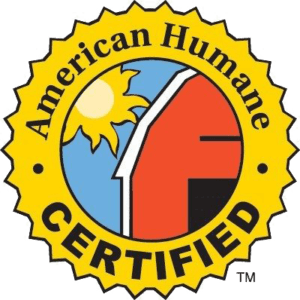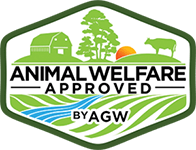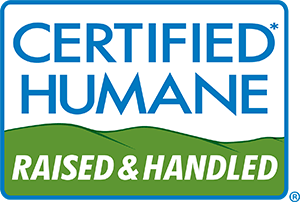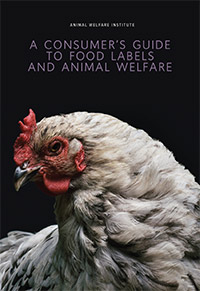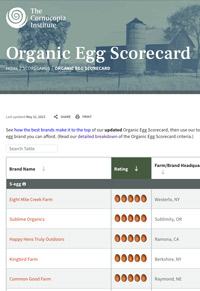Have you ever seen words like “cage free,” “free range,” or “pasture raised” on an egg carton and wondered what it meant for hens? Find out why pasture-raised eggs are the better choice in this video from the Animal Welfare Institute.
FAQs About Hen Housing and Egg Labels
Identifying Certified Pasture-Raised Egg Brands*
The following third-party programs certify pasture-raised eggs:
American Humane Certified
Look for “pasture raised,” as not all eggs certified by this organization are.
*The recommended certification programs are included here based only on an evaluation of their standards as they relate to animal welfare and to some extent the frequency of audits and percentage of locations of an operation that are audited. Their inclusion on this list does not constitute an endorsement of the quality of the auditors or independent auditing company used by the certifier. Consideration of the effects of production on wildlife, the environment, or any aspect of production beyond the farmed species is beyond the scope of this webpage.
Finding Certified Pasture-Raised Eggs and Plant-Based Egg Alternatives
The following resources can be used to locate pasture-raised eggs and plant-based alternatives:
Find Humane
Website and app to find higher-welfare animal products
Shop with Your Heart
Grocery list search function that includes plant-based alternatives
USDA Local Food Directories
Online directories of CSAs, farmers markets, and on-farm markets
Additional Resources
The Animal Welfare Institute’s
A Consumer’s Guide to Food Labels and Animal Welfare
The Cornucopia Institute’s
Organic Egg Scorecard
